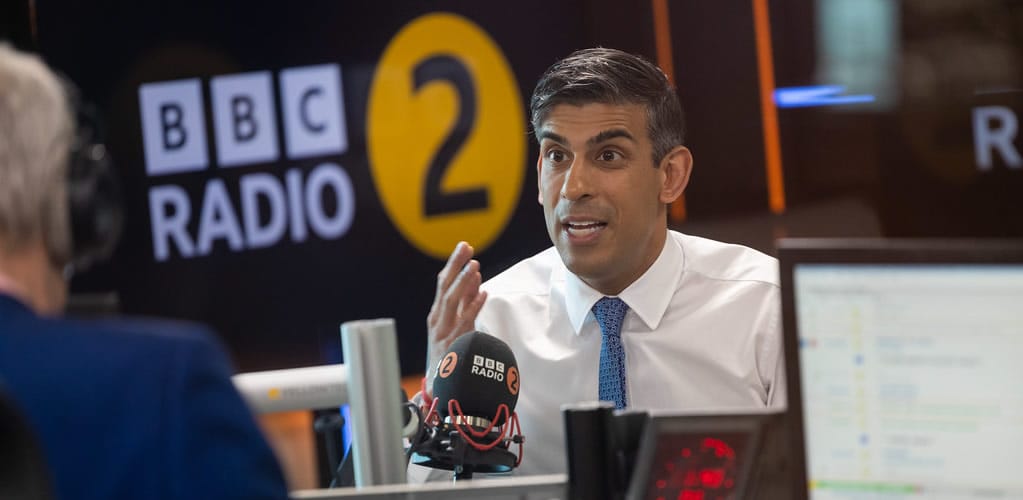Sunak wants six. Starmer two. But do live TV debates even matter any more?
Rishi Sunak’s call for six weekly debates with Keir Starmer, dismissed by the leader of the Labour Party, highlights the diminished value of televised political debates in an era of social media and scripted interactions.

W hat to make of the determination of Britain’s Prime Minister Rishi Sunak to ceaselessly debate his main political rival, Labour’s Keir Starmer, each of the six weeks until the July 4 general election?
In a piece for The Telegraph, Mr Sunak claimed the Labour leader does not have the “courage” to face him. The right way forward, he seemed to suggest, was for a gladiatorial contest between the standard bearers of the two main parties, the verbal equivalent of mud-wrestling. (If so, one has to assume Mr Sunak wouldn’t wear his customary slim-fitting suit to such a face-off but a tracksuit or similar.)
As it turns out, Mr Sunak’s six-debate plea has been dismissed by Mr Starmer. He told the BBC, “I can do one debate or 100, I know what Sunak is going to say.”
He went on to acknowledge the reality that televised debates had become a fixture in British politics, while almost as soon dissing them as insubstantial: “Of course, there will be live TV debates, but I want to talk for as long as I can to voters directly and take my message to them and hear from them. At the end, the power is with those voters.”
Are live TV debates between key politicians insubstantial now? Are they not worth the time and effort invested, nor the viewing stats generated?
Let’s put the issue in context. TV debates aren’t a long-standing tradition in British politics. Such conversations between party leaders started only in 2010, a half-century after Richard Nixon and John F Kennedy went head to head in the 1960 US presidential contest.
Even in the US, the birthplace of TV debates between presidential candidates, these contests have been a sideshow for much of the past decade. Blame Donald Trump, if you will, for the demise of the standard calendar of US presidential live TV debates. There was his indiscipline, his failure to play by the informally agreed rules. All of that is true.
But one has to wonder if TV debates are still fit for purpose in the age of social media. Perhaps they no longer serve any purpose other than to temporarily boost a network’s ratings for a scant hour some weeknight? What do voters really get, other than the chance to see the candidates talking to someone they wouldn’t normally, in tones they wouldn’t normally use, and in a setting they wouldn’t normally choose?
Perhaps it is a politician’s real engagement with real voters that provides the most clarity on what one can expect if they’re elected.
That’s a good thought if politicians really did offer themselves up for real conversations with real voters (and real journalists) about their real policies. But so much of what passes for political conversation today is poorly scripted pablum, designed expressly to cushion the vote-seeker from the vote-caster’s desire to gently pummel the other out of intense curiosity about their intentions.
In another age, we called that retail politics. TV debates are showtime. Advertorials.

GOING FURTHER
Tories challenge Starmer to a record six TV debates | Telegraph
Starmer agrees to TV election debates with Sunak | BBC News
Sources:
▪ This piece was first published in Medium and re-published in PUBLIC SQUARE UK on 1 June 2024 under a Creative Commons Attribution-NonCommercial 4.0 International licence. | The author writes in a personal capacity.
▪ Cover: Flickr/Number 10. (Licensed under a Creative Commons Attribution-ShareAlike 4.0 International License.)







[Read our Comments Guidelines]